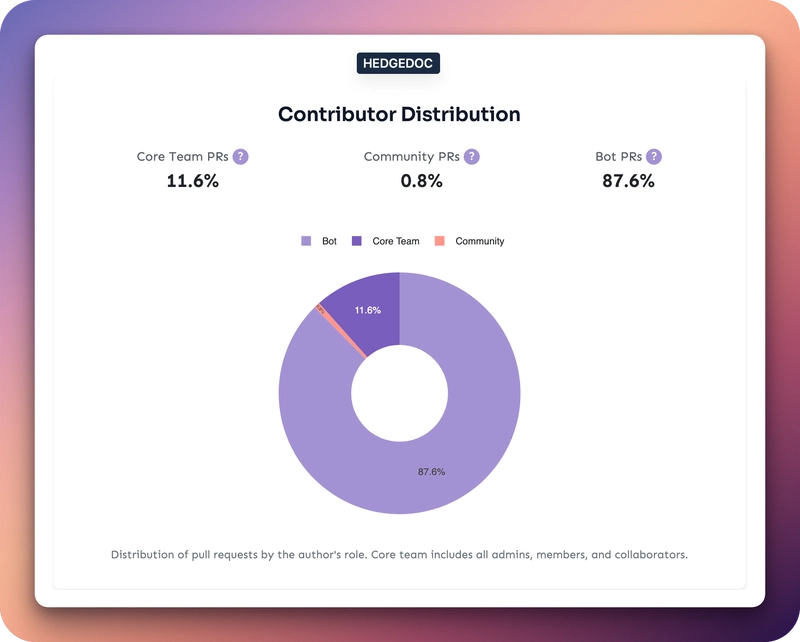Building Tech Teams That Are Fearless and Psychologically Safe
Success in the rapidly evolving field of technology depends on creativity and teamwork. However, psychological safety is a crucial element that frequently influences how successful tech teams are. Fostering creativity and productivity requires establishing an atmosphere where team members can freely share their thoughts, take chances, and own up to their mistakes without worrying about repercussions or embarrassment. In this blog, we examine the importance of psychological safety in IT teams and how leaders can foster it to create courageous, high-performing teams. The Significance of Psychological Safety in Technical Teams 1. Promotes Experimentation and Innovation Risk-taking is necessary for invention, which is what tech teams thrive on. Employees are reluctant to dispute preexisting ideas or offer new ones when they fear criticism. Team members who feel psychologically safe are able to think creatively without worrying about failing, which results in groundbreaking technological breakthroughs. 2. Promotes Teamwork and Collaboration Cross-functional cooperation is frequently necessary for tech projects to be successful. Members of a team talk freely, share information, and collaborate well when they feel safe. Better problem-solving and project results result from this culture of mutual respect and trust. 3. Lowers Stress and Promotes Health High levels of pressure are common in tech jobs, and stress and burnout are made worse by a poisonous workplace culture. By lowering anxiety, psychological safety fosters a supportive and respected workplace, which eventually raises employee retention and job satisfaction. 4. Enhances Growth and Learning Errors are unavoidable when developing technology. Employees in psychologically secure teams don't dread setbacks; instead, they learn from them. Promoting a growth attitude enables team members to advance their abilities over time, creating a more robust and resilient workforce. How to Encourage Your Tech Team to Be Psychologically Safe 1. Take the Empathic and Vulnerable Lead The culture of the workplace is shaped by its leaders. Leaders build trust and inspire others to follow suit when they are transparent about their own struggles, own up to their errors, and actively listen to their teams. A culture of openness and understanding is fostered by empathetic leadership. 2. Promote Honest Communication Every member of a tech team should feel free to express their thoughts in a supportive environment. Employees can feel heard and appreciated by putting in place open-door policy, one-on-one check-ins, and frequent feedback sessions. 3. Accept Failure as a Chance for Learning Establish a culture that views failure as a learning opportunity rather than a mistake that will ruin your career. After projects, promote post-mortem talks where teams examine what worked and what could be improved without assigning blame or passing judgment. 4. Acknowledge and Value Contributions Employee morale is raised and a sense of belonging is strengthened when efforts and accomplishments, no matter how modest, are acknowledged. Rewards, peer-to-peer shoutouts, and public recognition all support sustained engagement and motivation. 5. Create Diverse and Inclusive Teams The strongest psychological safety occurs in settings that value inclusiveness and variety. Promote the employment of people from a variety of backgrounds and make sure that each team member feels appreciated for their distinct viewpoints and included. Organizations like Bridge Group Solutions are actively promoting inclusive hiring and workplace values in their tech teams. 6. Offer Training on Psychological Safety Providing teams with training in conflict resolution, active listening, and emotional intelligence can provide them the tools they need to establish and maintain a psychologically safe workplace. Employees are more likely to have meaningful interactions when they know how to handle challenging conversations. Example from the Real World: Google's Project Aristotle In order to ascertain what constitutes a successful team, Google carried out a comprehensive study known as Project Aristotle. According to the study, the most important component of high-performing teams was psychological safety. Teams that were comfortable taking chances and sharing their opinions performed better than those that weren't. The significance of cultivating a culture of safety and trust in IT environments is emphasized by this study. Companies like Einfratech are inspired by such models to implement team-centered practices that drive innovation and performance. Concluding Remarks Establishing psychological safety is the first step in building brave IT teams. Increased creativity, productivity, and job happiness are the outcomes of team members feeling free to share ideas,

Success in the rapidly evolving field of technology depends on creativity and teamwork. However, psychological safety is a crucial element that frequently influences how successful tech teams are. Fostering creativity and productivity requires establishing an atmosphere where team members can freely share their thoughts, take chances, and own up to their mistakes without worrying about repercussions or embarrassment.
In this blog, we examine the importance of psychological safety in IT teams and how leaders can foster it to create courageous, high-performing teams.
The Significance of Psychological Safety in Technical Teams
1. Promotes Experimentation and Innovation
Risk-taking is necessary for invention, which is what tech teams thrive on. Employees are reluctant to dispute preexisting ideas or offer new ones when they fear criticism. Team members who feel psychologically safe are able to think creatively without worrying about failing, which results in groundbreaking technological breakthroughs.
2. Promotes Teamwork and Collaboration
Cross-functional cooperation is frequently necessary for tech projects to be successful. Members of a team talk freely, share information, and collaborate well when they feel safe. Better problem-solving and project results result from this culture of mutual respect and trust.
3. Lowers Stress and Promotes Health
High levels of pressure are common in tech jobs, and stress and burnout are made worse by a poisonous workplace culture. By lowering anxiety, psychological safety fosters a supportive and respected workplace, which eventually raises employee retention and job satisfaction.
4. Enhances Growth and Learning
Errors are unavoidable when developing technology. Employees in psychologically secure teams don't dread setbacks; instead, they learn from them. Promoting a growth attitude enables team members to advance their abilities over time, creating a more robust and resilient workforce.

How to Encourage Your Tech Team to Be Psychologically Safe
1. Take the Empathic and Vulnerable Lead
The culture of the workplace is shaped by its leaders. Leaders build trust and inspire others to follow suit when they are transparent about their own struggles, own up to their errors, and actively listen to their teams. A culture of openness and understanding is fostered by empathetic leadership.
2. Promote Honest Communication
Every member of a tech team should feel free to express their thoughts in a supportive environment. Employees can feel heard and appreciated by putting in place open-door policy, one-on-one check-ins, and frequent feedback sessions.
3. Accept Failure as a Chance for Learning
Establish a culture that views failure as a learning opportunity rather than a mistake that will ruin your career. After projects, promote post-mortem talks where teams examine what worked and what could be improved without assigning blame or passing judgment.
4. Acknowledge and Value Contributions
Employee morale is raised and a sense of belonging is strengthened when efforts and accomplishments, no matter how modest, are acknowledged. Rewards, peer-to-peer shoutouts, and public recognition all support sustained engagement and motivation.
5. Create Diverse and Inclusive Teams
The strongest psychological safety occurs in settings that value inclusiveness and variety. Promote the employment of people from a variety of backgrounds and make sure that each team member feels appreciated for their distinct viewpoints and included.
Organizations like Bridge Group Solutions are actively promoting inclusive hiring and workplace values in their tech teams.
6. Offer Training on Psychological Safety
Providing teams with training in conflict resolution, active listening, and emotional intelligence can provide them the tools they need to establish and maintain a psychologically safe workplace. Employees are more likely to have meaningful interactions when they know how to handle challenging conversations.
Example from the Real World: Google's Project Aristotle
In order to ascertain what constitutes a successful team, Google carried out a comprehensive study known as Project Aristotle. According to the study, the most important component of high-performing teams was psychological safety. Teams that were comfortable taking chances and sharing their opinions performed better than those that weren't. The significance of cultivating a culture of safety and trust in IT environments is emphasized by this study.
Companies like Einfratech are inspired by such models to implement team-centered practices that drive innovation and performance.
Concluding Remarks
Establishing psychological safety is the first step in building brave IT teams. Increased creativity, productivity, and job happiness are the outcomes of team members feeling free to share ideas, learn from errors, and work together honestly. To create resilient and productive teams, leaders must actively promote empathy, openness, and inclusivity.


































































































































































![[The AI Show Episode 145]: OpenAI Releases o3 and o4-mini, AI Is Causing “Quiet Layoffs,” Executive Order on Youth AI Education & GPT-4o’s Controversial Update](https://www.marketingaiinstitute.com/hubfs/ep%20145%20cover.png)



















































































































































































































































.png?width=1920&height=1920&fit=bounds&quality=70&format=jpg&auto=webp#)





















_Vladimir_Stanisic_Alamy.jpg?width=1280&auto=webp&quality=80&disable=upscale#)


















































































![Amazon to display cost of tariffs on products in 'hostile and political' act [u]](https://photos5.appleinsider.com/gallery/63442-131837-000-lede-Amazon-xl.jpg)





























![AirPods Pro 2 With USB-C Back On Sale for Just $169! [Deal]](https://www.iclarified.com/images/news/96315/96315/96315-640.jpg)
![Apple Releases iOS 18.5 Beta 4 and iPadOS 18.5 Beta 4 [Download]](https://www.iclarified.com/images/news/97145/97145/97145-640.jpg)
![Apple Seeds watchOS 11.5 Beta 4 to Developers [Download]](https://www.iclarified.com/images/news/97147/97147/97147-640.jpg)











































![Did T-Mobile just upgrade your plan again? Not exactly, despite confusing email [UPDATED]](https://m-cdn.phonearena.com/images/article/169902-two/Did-T-Mobile-just-upgrade-your-plan-again-Not-exactly-despite-confusing-email-UPDATED.jpg?#)





















































